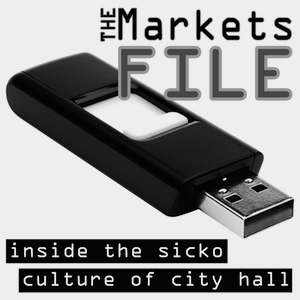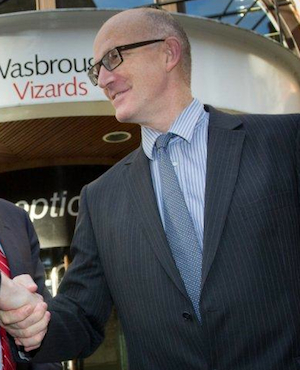**** DEATH RIDDLE MARKETS BOSS PUT IN LINE OF FIRE BY SENIOR MANAGERS AND COUNCILLORS ****
The BRISTOLIAN has obtained a sensational letter from a  Markets Service whistleblower to the council’s former Monitoring Officer, Stephen McNamara sent in July 2012. The letter was also copied
Markets Service whistleblower to the council’s former Monitoring Officer, Stephen McNamara sent in July 2012. The letter was also copied  to former strategic director Will Godfey and a handful of senior councillors responsible for financial oversight.
to former strategic director Will Godfey and a handful of senior councillors responsible for financial oversight.
The letter is a formal complaint regarding suicide boss, Tony Harvey’s multiple failures in his treatment of a bona fide whistleblower and it particularly focuses on Harvey’s proposed ‘restructure’ of the markets service that he announced, in a remarkable coincidence, just days after the whistleblower came forward in 2012!
The letter explains that Harvey was undertaking this restructure of the department as a blatant means of getting the whistleblower out of their post while an investigation into serious financial irregularities in Harvey’s dodgy service had barely begun.
Remarkably, Harvey was refusing to suspend his dodgy restructure on the basis that “the [audit] investigation will not affect the review[/restructure]”. An absurd opinion. How could an investigation that would conclude with a considerable number of recommendations about the structure and practice of the department’s financial management not affect a review of the department’s structure and practice?
As The BRISTOLIAN has been told by a well-placed source, “Harvey’s restructure always looked like the act of some bent-as-hell management madman intent on sacking a whistleblower to cover up his own dodgy and incompetent management conduct rather than the cool-headed, well thought out professional restructure of a local authority department he was handsomely paid to produce.”

Stephen McNamara – another oafish decision someone else pays the price for?
Indeed, the letter to McNamara highlights a number of major irregularities in Harvey’s restructure plan. Some proven accurate when the council later had to reach an out-of-court settlement with one of the whistleblowers due to the flaws in this very restructure.
The letter goes on to ask that Harvey’s restructure process be suspended until the financial investigation is complete and a proper, comprehensive restructure, including the recommendations from the investigation, could be produced. The whistleblower and his union even offered their wholesale help and support to such a process.
The conclusion of the letter is intriguing. Firstly it states:
You are entirely at liberty to continue on the course selected by Tony Harvey and I am at liberty to reach the conclusion that you’re not taking my complaints at all seriously and take them outside the organisation.
A clear indication that the whistleblower would make things public if necessary. They then go on to say,
My trade union representative and I are more than happy to discuss the issues raised in this letter with either yourself or Will [Godfrey] or another serious management representative that is not Tony Harvey.
A clear indication that the whistleblower was open to dialogue, discussion and negotiation. The letter concludes by saying,
I’m extremely persistent and deeply interested in the proper conduct of public affairs. I’m not going to go away and there’s certainly nobody in your authority capable of scaring me away. I’ve provided a number of reasonable ‘soft’ options worth pursuing in this letter. I would strongly encourage you to take one of them.
Alas, McNamara’s response was short, curt and dismissive. No discussion. No dialogue. No negotiation. Harvey’s dodgy process to remove a whistleblower from their job during a ‘live’ financial investigation would continue.
Unfortunately – for them – The BRISTOLIAN also does short, curt and dismissive. More effectively, many would say, than a jumped-up public sector lawyer like McNamara.
And so the die was cast. Senior council bosses proactively decided upon open conflict and a bruising public row rather than negotiation and compromise.
But did they bother to think through the implications of their decision? Did they consider the potential impact on their staff – such as Tony Harvey – on the frontline of any brutal and very public conflict? Did they consider their duty of care towards Tony Harvey?
Or was this another decision driven by sheer arrogance and the knowledge that someone else’s body could always be thrown in the way to deal with the consequences and to pay any price?
 Just two and a half years after serious issues were first raised by staff and over two years since any investigation was cynically SPIKED by council facilities boss Tony Harvey, the city council’s AUDIT COMMITTEE has finally woken up and requested a report into the crackpot finances at their Markets Service.
Just two and a half years after serious issues were first raised by staff and over two years since any investigation was cynically SPIKED by council facilities boss Tony Harvey, the city council’s AUDIT COMMITTEE has finally woken up and requested a report into the crackpot finances at their Markets Service.






